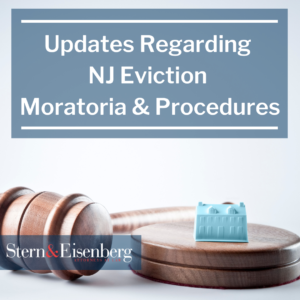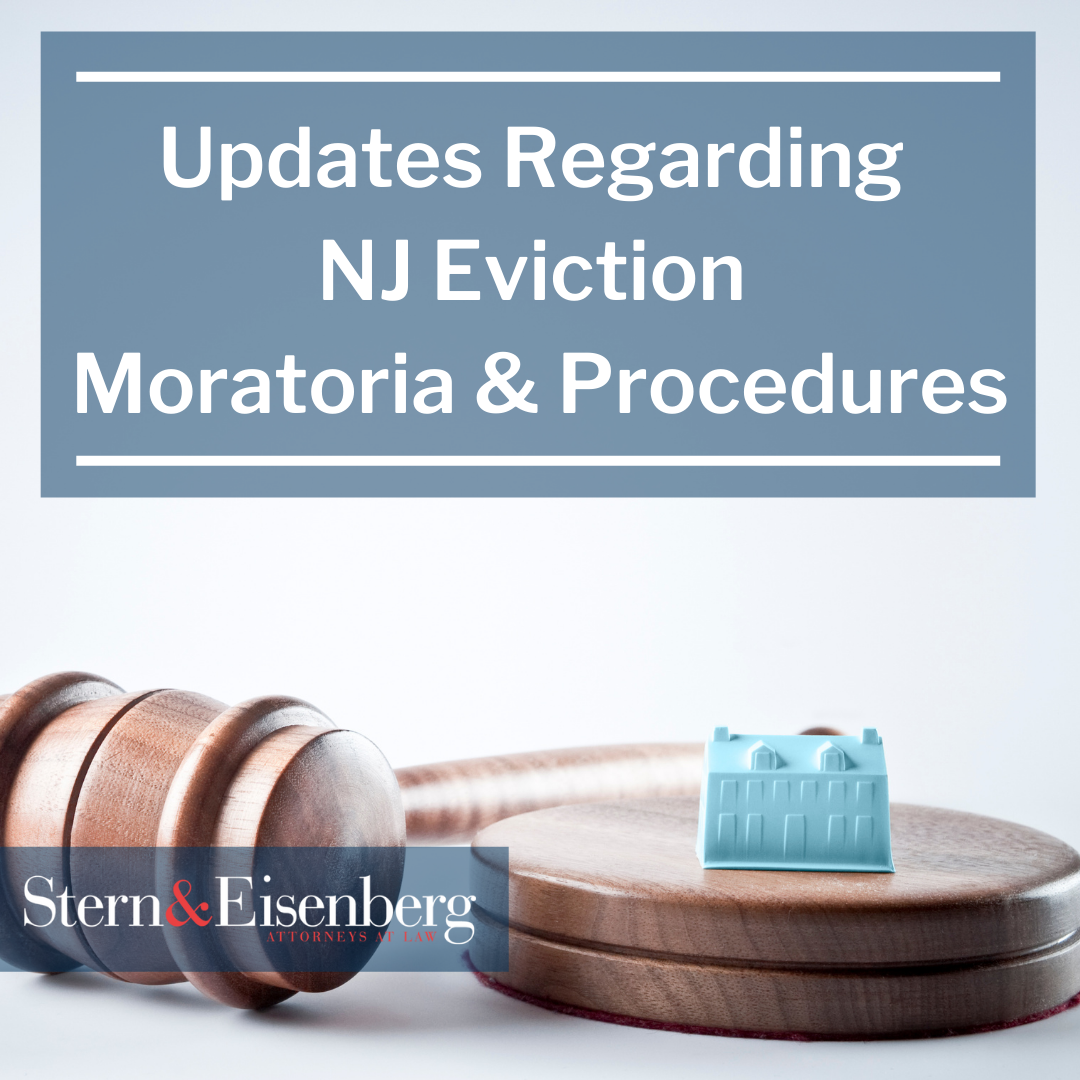By: Christopher Saliba, Esquire

On August 4, 2021, Governor Phil Murphy signed Bill Nos. S-3691 and A-4463 into law. S-3691 provides residential eviction prevention and utility assistance for renters who have been financially impacted by the COVID-19 pandemic by appropriating an additional $500 million for the COVID-19 Emergency Rental Assistance Program (CVERAP) and $250 million for utility assistance, which are programs administered by the New Jersey Department of Community Affairs (DCA). A-4463 provides an additional layer of protection for defaulted renters during the public health emergency by mandating that court records pertaining to their non-payment during this period be kept confidential.
The new legislation sets forth new eviction moratoria expirations for those who were unable to pay their rent during the period of March 1, 2020 through August 31, 2021, or, for certain tenants, through December 31, 2021. For residential tenants with household incomes below 120% Area Medium Income (AMI) but above 80%, the eviction moratorium concluded at the end of August. For certain households with incomes below 80% AMI, the moratorium concludes at the end of the year. In order for the special protections described above to take effect, the tenant must provide the required self-certification form to their landlords and/or to the court. As to evictions stemming from a residential foreclosure action, said moratorium is set to expire November 15, 2021.
While tenants who are covered by this special protection may not be evicted, the rent is still due to landlords and landlords may pursue this rent through a money judgment. Further, landlords who are receiving rental assistance must waive any late fees accrued by tenants during the special protections period and may not report delayed rent to crediting agencies. Lastly, landlords may not disclose non-payment of rent to others and prospective landlords may not deny renting to a person who wasn’t able to pay rent during the covered period of March 1, 2020 through August 31, 2021.
Pursuant to its July 1, 2021 Order, the New Jersey Supreme Court has authorized mandatory settlement conferences in all residential landlord tenant cases. This requirement took effect immediately and all vicinages will schedule settlement conferences for pending landlord tenant cases. The Order directs that priority will be given to the nearly 14,000 landlord tenant cases that have been pending for more than one year or in which more than 12 months of rent is claimed to be due.
Since the beginning of the pandemic, all landlord-tenant trials have been suspended, absent certain circumstances. The Judiciary now is gearing up to resume trials in residential landlord tenant cases, with evictions occurring in accordance with the newly enacted legislation described above.
Through the Court’s June 11, 2020, Omnibus Order, vicinages were authorized to schedule conferences in landlord tenant cases, including to conduct settlement negotiations in an effort to resolve cases without trial. However, voluntary participation has been sparce and as a result, the Court is now mandating settlement conferences to be scheduled. The Order provides that the conferences will primarily be conducted in a remote format, unless a Judge, in their discretion, schedules an in-person conference based on the individual circumstances of a case.
Both parties are required to appear at the settlement conference. The landlord is recommended to submit all required documents, such as a lease and registration statement (if applicable) five days before the settlement conference. If the landlord fails to appear, the case will be dismissed; and if the tenant fails to appear, default will be entered by the clerk.
If the landlord is prepared to proceed, the Court will hold a proof hearing; otherwise, a proof hearing will be held within 10 days of the settlement conference date. If the landlord establishes entitlement to relief at the proof hearing, the Court will enter default judgment, but the eviction cannot proceed until the end of the moratorium on residential evictions.
The goal of the settlement conferences is to have both parties appear, where the settlor will assist the parties in working out an agreement, which will be reduced to writing, placed on the record, and distributed to the parties. However, it is expected that not all matters will settle. For those where no settlement can be reached, the matter will be scheduled for trial. Trials were expected to begin September 1, 2021, but that date has been slightly pushed back due to the new legislation signed into law.
The Court’s authorization of mandatory settlement conferences does not affect commercial landlord tenant proceedings, which have resumed pursuant to the Court’s June 2, 2021, Order. Likewise, commercial foreclosure evictions are not bound by any moratoria and are allowed to proceed.
